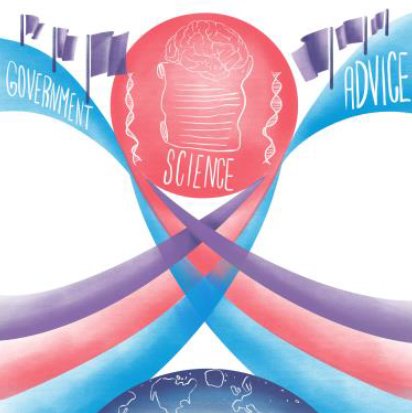Science advice plays a pivotal role in promoting transparency by elucidating the rationale behind policy choices and the scientific evidence underpinning them.
In 1974, Solly Zuckerman, the first science adviser in the United Kingdom, said that government ministers make the final decisions. He also suggested that “if scientists want more than this, they’d better become politicians.” This shows that while scientists can offer advice, it’s ultimately up to politicians to make decisions. Zuckerman’s words remind us that scientists and politicians need to work together to create effective policies that benefit everyone.
In the modern era, it is imperative for governments to grasp the intricacies of science that transcend traditional domains and permeate virtually every facet of governance. While the significance of scientific understanding in areas like defense, healthcare, and environmental stewardship is widely acknowledged, its relevance extends far beyond these realms.
Whether crafting policies for urban development, shaping educational strategies, optimizing transportation networks, ensuring food and health security, or managing natural resources, science serves as an invaluable guidepost for informed decision-making.
In the digital age, where advancements in artificial intelligence are redefining the landscape of public services, a solid grasp of scientific principles becomes indispensable for harnessing the potential of emerging technologies responsibly and ethically.
From fostering sustainable urban environments to revolutionizing public communication systems, the integration of scientific insights into policymaking underscores the versatility and indispensability of science in shaping the trajectory of governance in the 21st century.
In the midst of Pakistan’s dynamic political landscape, marked by diverse challenges, the role of science advice emerges as an inspiration of hope for fostering evidence-based policymaking and bolstering democratic institutions.
As the nation grapples with multifaceted issues ranging from public health crises to environmental sustainability, leveraging scientific expertise holds immense potential to drive positive change and enhance the democratic fabric of the country.
At the heart of democracy lies the principle of informed decision-making, wherein policies are crafted based on rigorous analysis and factual evidence rather than ideological predispositions or political expediency. Science advice serves as a catalyst in this process, offering policymakers access to objective, data-driven insights that can inform policy formulation and implementation. By embracing scientific expertise, Pakistan can transcend the limitations of subjective decision-making and pave the way for more effective governance.
Pakistan’s democratic challenges are woven with threads of socio-economic inequalities, widespread disparities in wealth, access to basic services, economics, poverty, illiteracy, and social stigma. Tackling these issues requires holistic solutions grounded in scientific research and innovation.
Science advice equips policymakers with the tools to understand the root causes of these challenges, identify viable interventions, and assess their potential impacts. Whether combating infectious diseases, mitigating the effects of climate change, or enhancing agricultural productivity, science advice offers a pathway towards sustainable development and societal progress.
Consistently, transparency and accountability are cornerstones of a robust democracy, fostering public trust in government institutions and ensuring that decisions reflect the interests of the citizenry.
Science advice plays a pivotal role in promoting transparency by elucidating the rationale behind policy choices and the scientific evidence underpinning them. When policymakers engage with scientific experts openly and transparently, it enhances the legitimacy of governance and engenders public confidence in the decision-making process.
In a democracy, the ability to anticipate and address long-term challenges is paramount for ensuring the well-being of future generations.
Science advice encourages policymakers to adopt a forward-thinking approach, considering the long-term implications of their decisions on issues such as public health, environmental sustainability, and economic resilience. By prioritizing evidence-based, future-oriented policies, Pakistan can lay the groundwork for enduring democratic governance that serves the interests of all its citizens.
In short, as Pakistan navigates the complexities of democratic governance in the 21st century, the integration of scientific advice emerges as a key player for progress and prosperity. By embracing evidence-based decision-making, addressing societal challenges, promoting transparency, building local scientific capacity, and fostering long-term planning, Pakistan can chart a course towards a more resilient, inclusive, and vibrant democracy.
In harnessing the transformative power of science advice vis-à-vis Scientization of Democracy, Pakistan has the opportunity to realize its full potential as a democratic nation committed to the progression of its people on a global stage.
